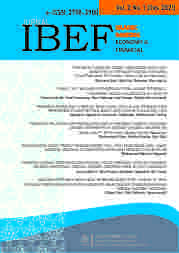IMPLEMENTASI ZAKAT PROFESI PEGAWAI NEGERI SIPIL (PNS) PADA BADAN AMIL ZAKAT NASIONAL (BAZNAS) DI KABUPATEN KEPAHIANG MENURUT HUKUM ISLAM
Abstract
Zakat is a form of obedience and proof of affection for every Muslim. Zakat comes from the rich to the mustahiq. In the Qur'an, zakat is divided into two types, namely zakat on wealth and zakat fitrah. While the foundation for zakat within professions is the result of the thoughts of contemporary scholars regarding the QS. Al-Baqarah 267, issues a portion of the results for a good business. Because nowadays people receive income from various types of professions, including Civil Servants (PNS). BAZNAS Kepahiang Regency specifically carried out instructions from the regent to collect zakat from civil servants whose zakat amount was adjusted to the class and echelon of the civil servants. Based on this, the authors are interested in researching the application of zakat within professions for civil servants at BAZNAS in Kepahiang Regency. This research is field research with a qualitative descriptive approach, while the data collection techniques are observation, interviews and documentation. While the technical data analysis is using a deductive analysis model. The results showed that the application of zakat within professions at BAZNAS Kepahiang Regency was known to be passively collected and civil servants issued zakat that had been adjusted based on their class and echelon. The distribution system is distributed in consumptive and productive forms, in distributing consumptive zakat, BAZNAS does not conduct in-depth data collection. While in distributing productive zakat, BAZNAS also does not collect data and surveys beforehand and does not carry out routine guidance and supervision. Based on the application of zakat within professions for civil servants at BAZNAS in Kepahiang Regency, it is not in accordance with Islamic law.
Key Words : Zakat on Profession; Civil Cervant (PNS); and Islamic Law.
References
Abduh, M. (2009). Zakat Tinjauan Fikih dan Teori Ekonomi Makro Modern. Jakarta: Fath Publishing.
Al-Asqalany, A.-H. I. (2009). Bulughul Maram Min Adillatil Ahkam. Tasikmalaya.
Al-Qardhawi, Y. (2004). Manajemen Zakat Profesional, Media Insani Press, Pajang : 2004, hal. 78. Pajang: Media Insani Press.
Apriyanto, S. K. (2018). Analysis of the Effect of Empowering Productive Zakat Funds on Welfare of the People. Jurnal Ekonomi Syariah Indonesia, 81-88.
Asfa'ani. (2013, Juni 01). Wawancara Analisis Pelaksanaan Zakat Profesi PNS Kabupaten Kepahiang. (M. R. Bayumi, Interviewer)
Caniago, K. H. (2011). Zakat Potential As A Means To Overcome Poverty (A Study In Lampung). Journal of Indonesian Economy and Business , 187-200.
Dimyati. (2017). Urgensi Zakat Produktif di Indonesia. Al-Tijary, 189-204.
Farida Prihatini, d. (2005). Hukum Islam Zakat & Wakaf. Jakarta: Papas Sinar Sinarti.
Hafidhuddin, D. (2007). Zakat dalam Perekonomian Modern. Jakarta: Gema Insani.
Hafizah Zainal, A. A. (2016). Reputation, Satisfaction of Zakat Distribution, and Service Quality as Determinant of Stakeholder Trust in Zakat Instituions. International Journal of Economics and Financial Issues, 72-76.
Hamid, A. (2011). Fiqh Kontemporer. Jogjakarta: Ar-Ruzz Media.
Hamid, A. (2012). Fikih Zakat. Curup: LP2 STAIN Curup.
Indonesia, U.-u. R. (2011). Tentang Pengelolaan Zakat Nomor 23 .
Muhazir. (2021). Zakat Profesi Perspektif Hukum Islam (Suatu Kajian Pendekatan Maqashid Syari'ah). Journal Islamic Circle, 1-15.
Mursyidi. (2006). Akuntansi Zakat Kontemporer. Bandung: PT Remaja Rosdakarya.
Prayogi, M. I. (2019). The Utilization of Zakah Productive towards Micro-Business Growth and Mustahik Welfare. Jurnal Ekonomi Pembangunan: Kajian Masalah Ekonomi dan Pembangunan, 1-11.
RI, D. A. (tt). Al-Quran dan Terjemahannya. Bandung: Gema Risalah Press.
Rifai, A. N. (2020). Konsep Ekonomi Islam dalam Peningkatan Kesejahteraan Mustahiq Melalui Zakat Produktif (BAZNAS) Kabupaten Purworejo. JIEI, 521-528.
Saukani. (2012, Juni 18). Wawancara Analisis Zakat Profesi PNS pada BAZNAS Kabupaten Kepahiang. (M. R. Bayumi, Interviewer)
Setiawan, D. (2011). Zakat Profesi dalam Pandangan Islam. Jurnal Sosial Ekonomi Pembangunan, 195-209.




